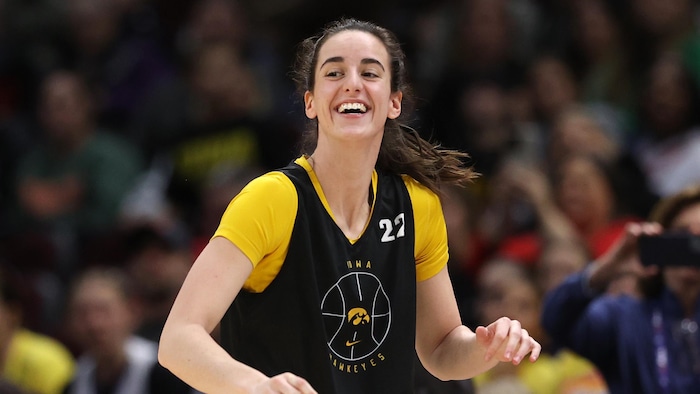The WNBA has long voiced concerns over a lack of media coverage, but now that the spotlight is intensifying, it seems there’s some resistance to it. This shift is partly attributed to what some call an initiation into the WNBA.
However, it’s becoming increasingly clear that there is a sense of resentment towards Caitlin Clark. Many players aspire to reach her level of success and visibility, but the reality is, they can’t replicate her unique qualities.
Caitlin Clark stands out not just for her skills but for her individuality. She truly is one of a kind. Her exceptional talent has seemingly made her a target for overly aggressive plays and unsportsmanlike conduct, with opponents seeking to make a statement at her expense.
Caitlin Clark, a rookie sensation in the WNBA, has been making headlines not just for her impressive performances on the court but also for her role in shaping discussions around social justice and fan engagement within the league.
The WNBA’s stance on social justice has been a focal point, sparking debates about its potential impact on viewership. While some argue that the league’s emphasis on social activism could alienate fans seeking pure basketball entertainment, others see it as a crucial aspect of the league’s identity. Initiatives like the Justice movement, where players honor women impacted by police brutality on their jerseys, underscore the league’s commitment to advocacy beyond sports.

Amidst these debates, Caitlin Clark has emerged as a pivotal figure who opts to focus on her game rather than engage heavily in what some term as “woke politics.” Her approach has garnered both praise and criticism, with her standout performances drawing in new fans and media attention. Critics point to the media scrutiny she faces, questioning bias and physicality in how she’s treated on the court.
Clark’s aggressive playing style has further fueled discussions within the WNBA community.
While some legends and analysts defend her as a game-changer challenging norms, others raise concerns about preferential treatment and drama surrounding her rookie season. The contrasting opinions highlight broader debates about authenticity and perception in professional sports.

Despite the controversies, Caitlin Clark’s impact on the WNBA cannot be understated. Her rivalry with players like Angel Reese has intensified media coverage and contributed to the league’s growing viewership. Moreover, Clark’s success has sparked envy among some veterans, potentially influencing future salary dynamics within the league.

As discussions continue to swirl around Caitlin Clark, it’s crucial to shift the focus back to celebrating her contributions to the sport and acknowledging the broader impact on players and fans alike.
Beyond conflicts and controversies, Clark represents a new wave of talent reshaping women’s basketball, embodying resilience and determination on and off the court.
In navigating these complexities, the WNBA finds itself at a crossroads of sports, social advocacy, and fan engagement, with players like Caitlin Clark shaping the narrative for future generations.




